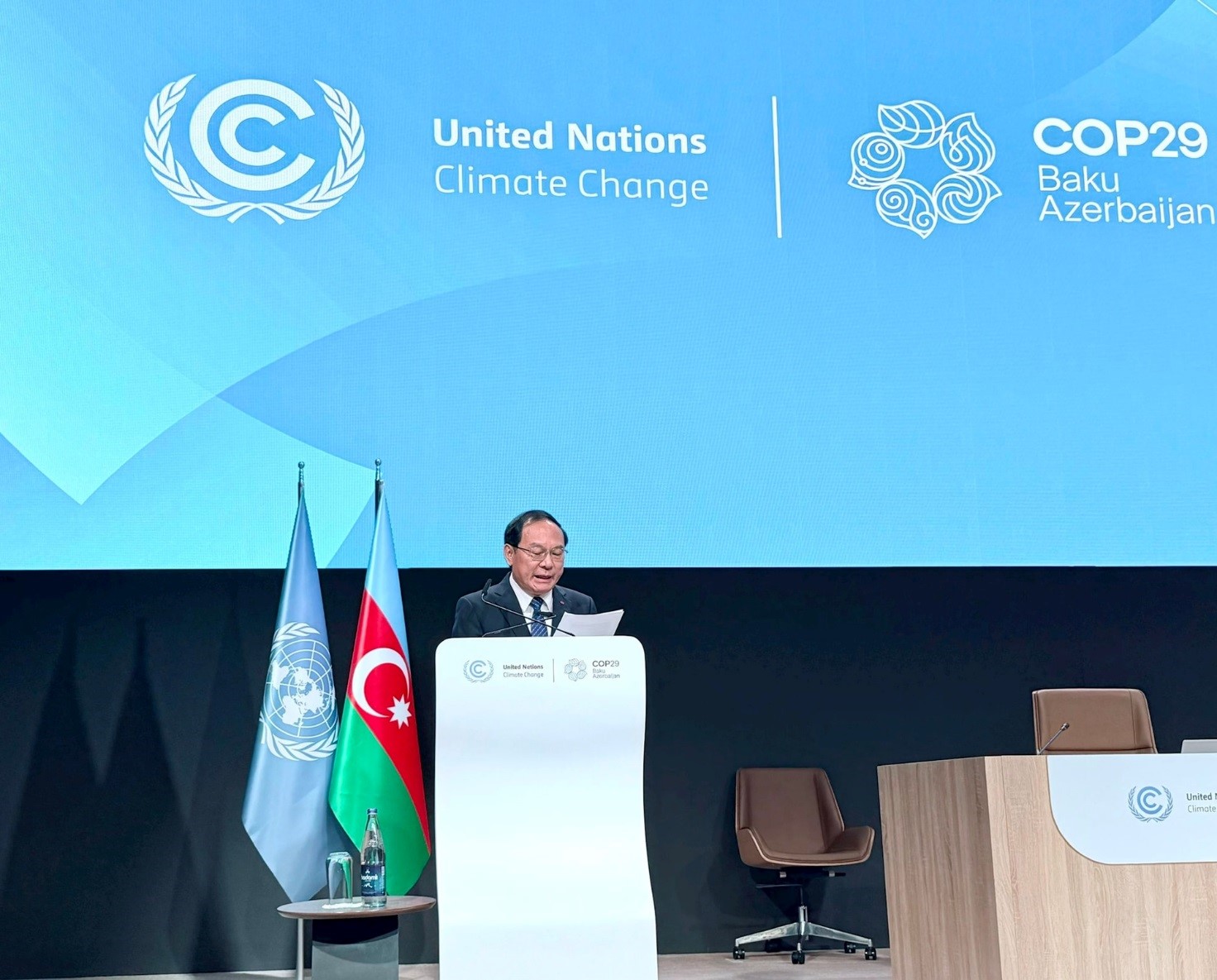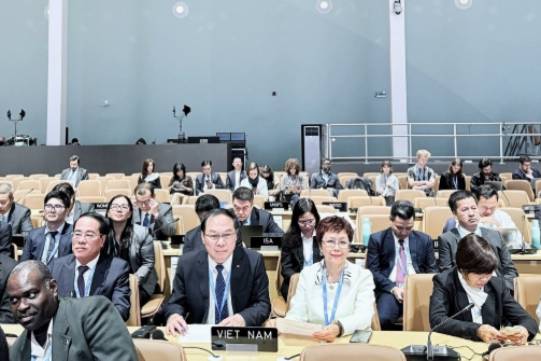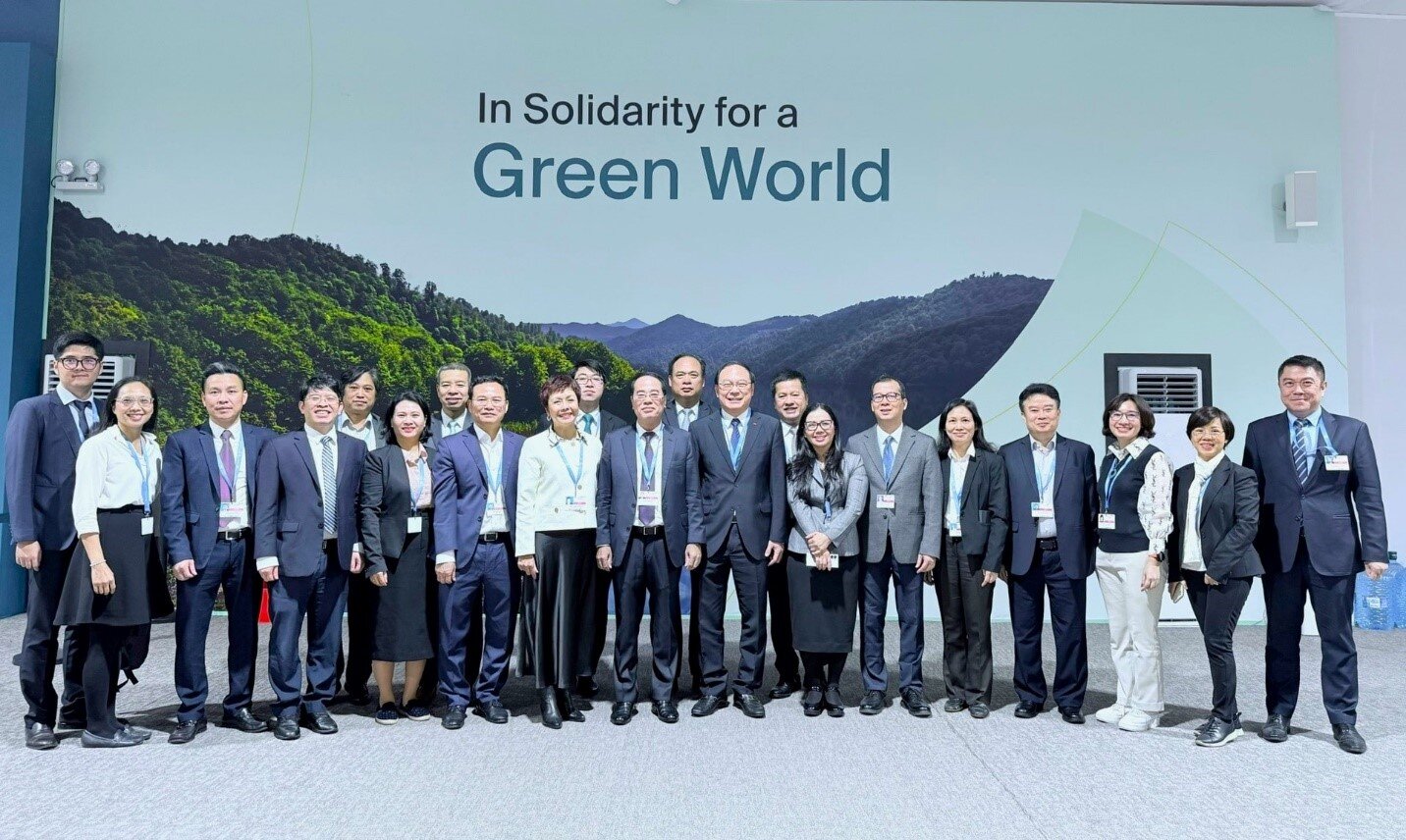On the morning of November 20, 2024 (local time), Deputy Minister of Natural Resources and Environment Le Cong Thanh - Head of the Vietnamese delegation at the 29th Conference of the Parties to the United Nations Framework Convention on Climate Change (COP 29) delivered an important speech at the High-level Session.
The high-level session within the framework of COP 29 was held on November 19 and 20, 2024. Here, each country was invited to speak for about 3 minutes, stating their national priorities and recommendations to COP29.
Speaking at the high-level meeting, Deputy Minister Le Cong Thanh pointed out that 2024 was the warmest year on record. Droughts, heat waves, forest fires, floods, and tropical cyclones occurred in many places around the world, including Viet Nam, and had a significant negative impact on the global economy.
 Deputy Minister of Natural Resources and Environment Le Cong Thanh - Head of the Vietnamese delegation spoke at the High-level Session within the framework of the COP29 Conference.
Deputy Minister of Natural Resources and Environment Le Cong Thanh - Head of the Vietnamese delegation spoke at the High-level Session within the framework of the COP29 Conference.In that context, Viet Nam has integrated climate change adaptation and greenhouse gas emission reduction measures and NDC implementation into the 2020 Law on Environmental Protection and other legal documents, long-term strategies, programs and plans for socio-economic development of the country.
Despite years of efforts by countries, the results of the Global Efforts Review 2023 show that current commitments are inadequate, highlighting the lack of trust and implementation methods to translate commitments into practical action.
“We welcome the theme of this year's COP29 Conference, In solidarity for a green world, with the two pillars of Enhance Ambition and Enable Action,” Deputy Minister Le Cong Thanh emphasized.
At this Conference, the Head of the Vietnamese delegation raised 3 important proposals.
First, developed countries need to take the lead in fulfilling their responsibilities; must drastically reduce net emissions to “zero” before 2040, significantly earlier than developing countries.
 Representative of the Vietnamese Delegation attending the High-level Session of the COP29 Conference
Representative of the Vietnamese Delegation attending the High-level Session of the COP29 ConferenceThe level of climate financial contributions needs to reach 1 trillion USD per year for the period from now to 2030 for developing countries to respond to climate change and implement a just economic, social and environmental transition. Financial resources for adaptation must be commensurate with mitigation, transparent, verifiable and easy to access.
Second, countries need to implement Nationally Determined Contributions for the current period and urgently develop NDC3.0 for the next period. Fulfilling commitments will build trust among countries and clear up the difficulties and obstacles in current negotiations on climate change response.
 Vietnamese delegation attends COP29 Conference
Vietnamese delegation attends COP29 ConferenceThird, it is necessary to promote international cooperation, promote the central role of the United Nations in responding to climate change, including implementing the Early Warning for all Initiative with a focus on supporting developing countries to improve their Early Warning Systems and respond to natural disasters.